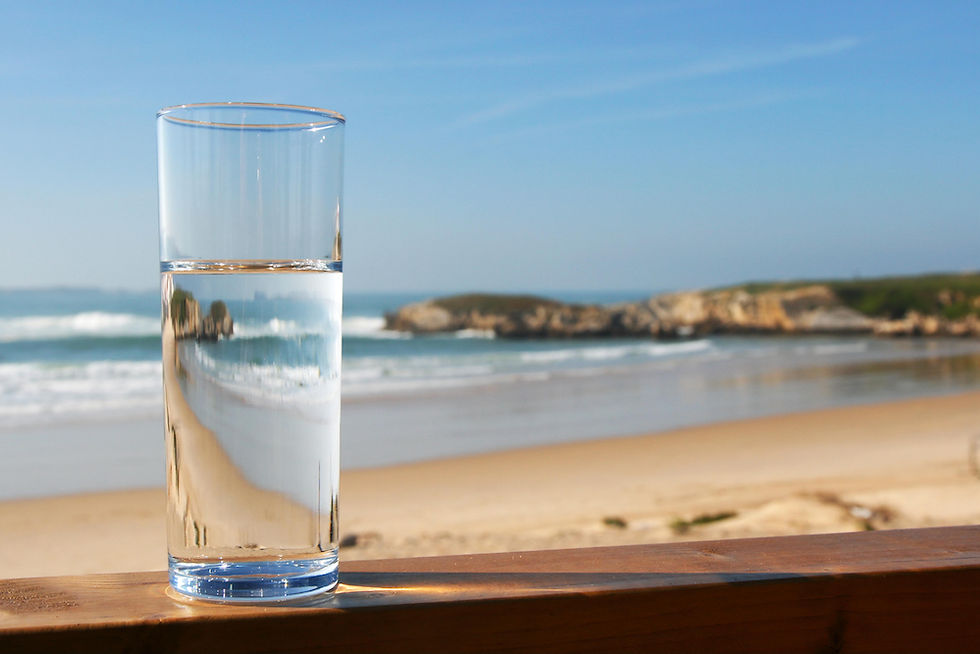Water, do you get enough of it?
- Cevie Penda Touré

- Jan 9, 2021
- 3 min read

Water is one of the most essential nutrients that the body needs. Wrap your brain around this: While the body can survive about 8 weeks without food, it can only last a couple of days without water! Yes, you can thirst to death. The human body is made up of about 60% of water, and most of what the body is made up of, including cells and body fluids, is water. So, we need to drink and absorb water.
Here are a few critical roles of water in the human body:
Flushes toxins
Lubricates Joints
Improves cell to cell communication
Ignites the body’s natural healing process
Removes waste
Transports nutrients
Moistens oxygen for easier breathing
Regulates body temperature
Improves oxygen delivery to cells
Water Absorption
If your diet includes wet foods, we absorb water from foods that contain water such as vegetables, fruits, broths, soups and stews that contain proteins. In modern days, many dry and fast foods are consumed, lessening the ability to absorb water from food, creating a stronger need to drink water. Water is also eliminated through many pathways in the body such as the kidneys, lungs, gastro-intestinal tract, and the skin, making the need to drink water even more critical for good health and proper bodily functions. There is a constant need to replace water on a daily basis in order for the body to thrive and function well.
Drinking more water on a daily basis is a good habit to have. But simply drinking water may not be the solution to complete hydration. Water needs electrolytes for proper absorption. Electrolytes are minerals that dissolve in water giving it an electrical charge which facilitates absorption by the body. In other words, electrolytes help the body to actually absorb the water. You can drink water all day, but if the body doesn’t absorb it you can remain dehydrated.
Dehydration
There are a number of beverages referred to as diuretics, which means they suck water from your body. These beverages include coffee, high sugar juices, some teas, alcohol, and soda. If any of these beverages are included in the diet it is suggested to drink 12 ounces of water per diuretic beverage intake.
Some common signs of dehydration include:
Cravings
Headaches
Heartburn
Migraines
Constipation
Irritability
Fatigue
Cramps
Chronic dehydration can contribute to many imbalances within the body. It is suggested that we aim to drink our personal body weight in ounces divided by 2 each day. This is the minimum water intake a person should aim for to achieve good hydration status. In order to stay in good hydration status, try to avoid dehydrating beverages and if you do drink them add extra water to your daily intake, and also add a pinch of colored (unrefined) sea salt to your water or an electrolyte solution such as trace minerals, which you can find in health food stores.
It is very important to drink water. There is nothing wrong with having coffee, or tea or cold pressed juice (which is more hydrating than an added-sugar juice) as long as you add extra water to your daily intake. If you are having trouble achieving good hydration take small steps. Start out with a certain amount of water per day and increase your intake weekly until you find yourself drinking what is considered enough water. Also pay attention to your body, sometimes you can notice if you are dehydrated through things like dry lips or flaky skin. Sometimes even feeling light headed, you may just need extra water.
Cheers! Drink up!



Comments